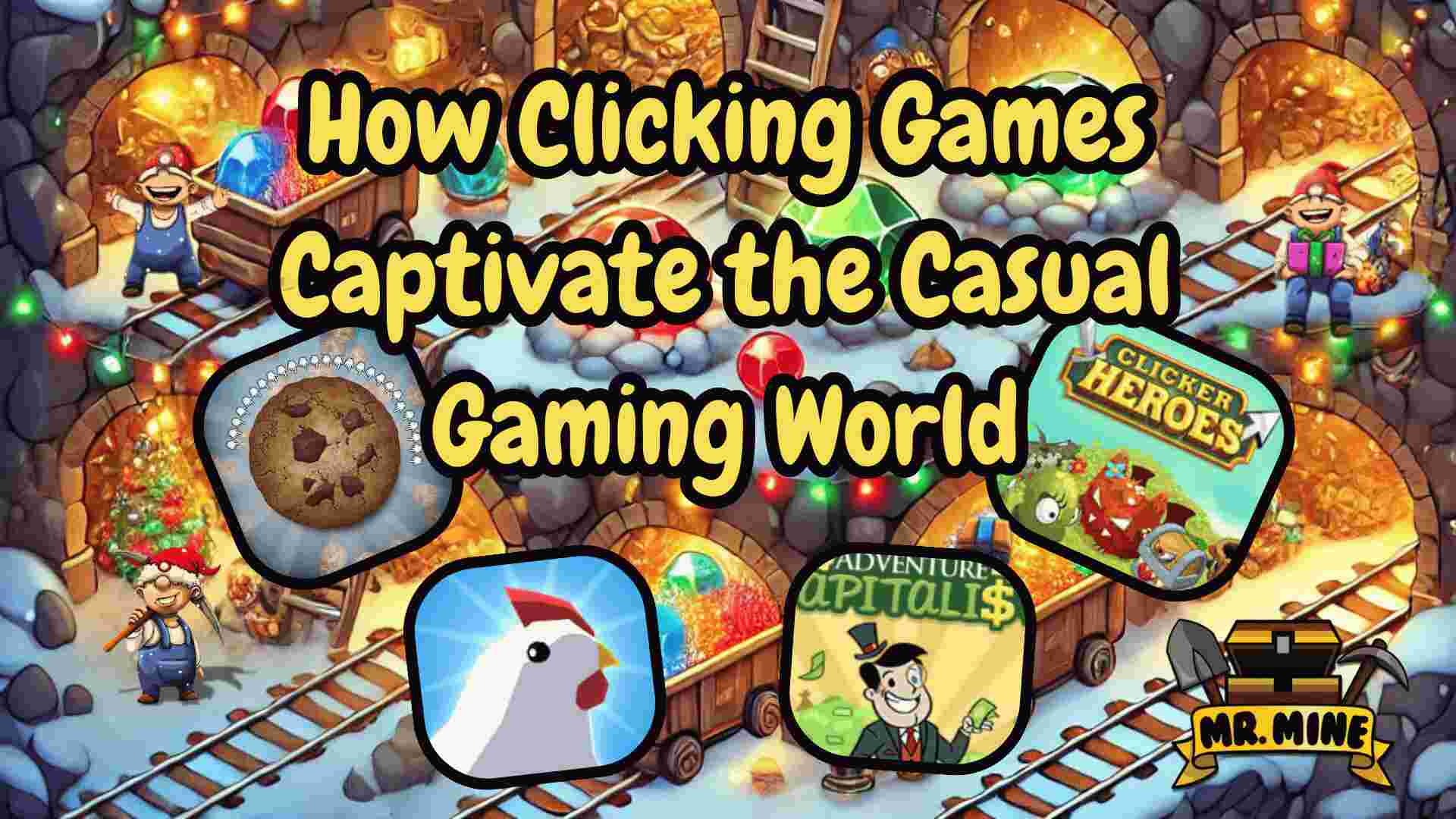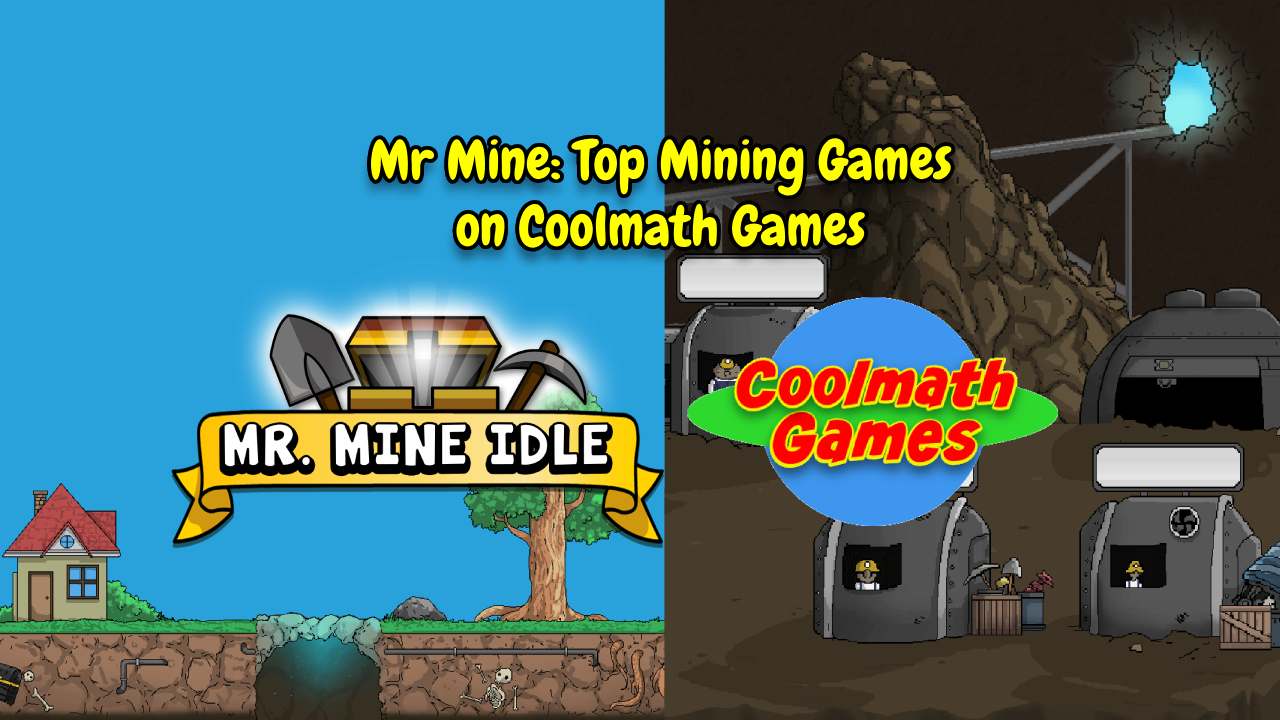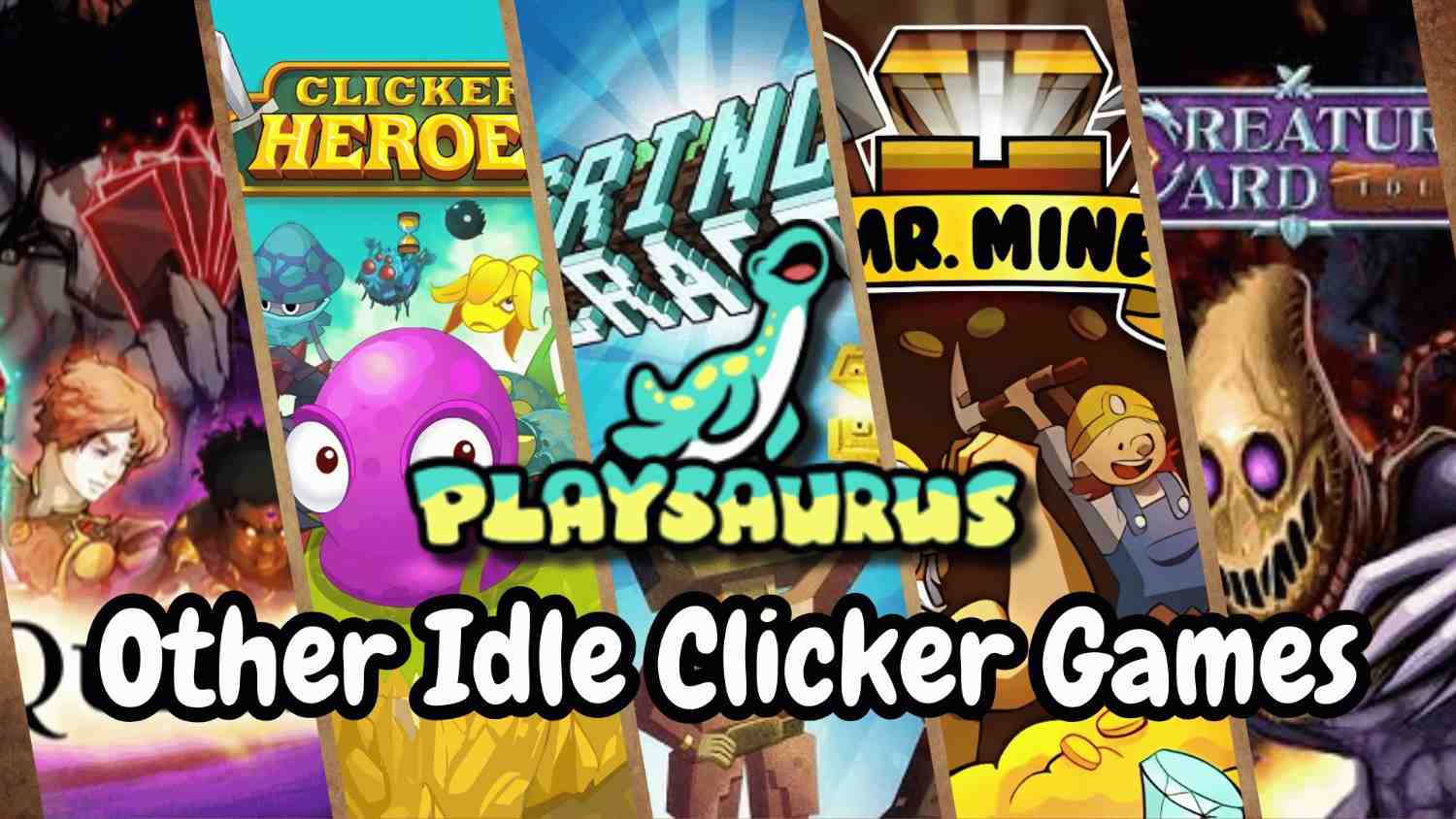Clicking games, also known as idle clicker games or incremental games, have become wildly popular in the world of casual gaming. These games are simple, addictive, and perfect for players who want fun without stress. But what makes idle clicker games so appealing? Let’s dive into their history, success factors, and what keeps players coming back for more.
Understanding Clicking Games
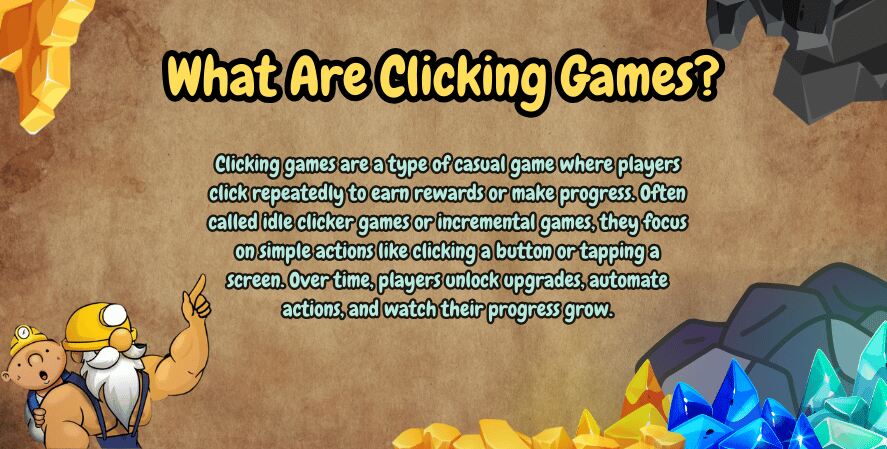
What Are Clicking Games?
Clicking games are a type of casual game where players click repeatedly to earn rewards or make progress. Often called idle clicker games or incremental games, they focus on simple actions like clicking a button or tapping a screen. Over time, players unlock upgrades, automate actions, and watch their progress grow.
How Do Clicker Games Work?
- Start Small: Players begin with basic clicks to earn points or in-game currency.
- Upgrade and Automate: As progress builds, players can buy upgrades to make clicking easier or automate the process.
- Achieve and Restart: Many games let players “reset” progress for bigger rewards, creating a fresh challenge.
Why Are Clicking Games So Addictive?
These games are popular because they’re easy to understand and offer quick rewards. You don’t need to invest hours of effort to enjoy the experience, and seeing constant progress is exciting. The simplicity appeals to people of all ages and gaming backgrounds.
A Brief History of Clicking Games
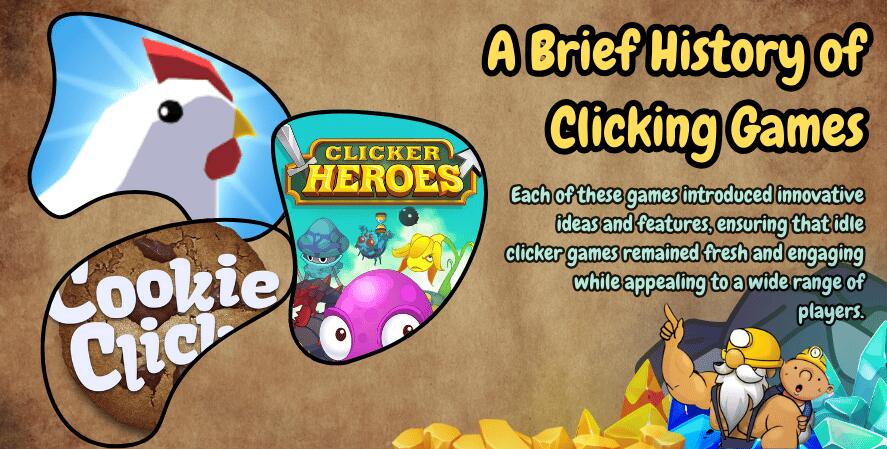
From Humble Beginnings to Global Hits
Clicking games began as simple, browser-based projects with straightforward mechanics. The genre gained massive popularity with the release of Cookie Clicker in 2013, a game that introduced automation and the concept of infinite growth. Over time, the format evolved, and these games transitioned to mobile platforms, attracting a larger and more diverse audience.
Milestones in Clicking Game Evolution
- Mr. Mine: A captivating mining-themed game that takes players on an underground journey. With resource management and deep progression mechanics, it brought a unique twist to the genre.
- Cookie Clicker (2013): Widely recognized as the genre’s trailblazer, this humorous and addictive game established the core mechanics of clicking and automation.
- Clicker Heroes (2014): Introduced role-playing game (RPG) elements, allowing players to battle monsters, collect heroes, and upgrade abilities, bringing a new layer of depth to idle clicker games.
- Egg, Inc. (2016): Focused on building an egg-production empire, this game combined idle mechanics with strategic resource management and colorful visuals.
- Adventure Capitalist (2014): Simplified the concept of managing a business empire, blending economic simulation with easy and engaging click-based gameplay.
Each of these games introduced innovative ideas and features, ensuring that idle clicker games remained fresh and engaging while appealing to a wide range of players.
Key Success Factors in Clicking Games
Simple and Intuitive Gameplay
Clicking games are easy to pick up and play. There’s no complicated story to follow or difficult controls to learn. This simplicity makes them perfect for casual gamers.
Why It Works:
- Instant Fun: You can start playing in seconds without reading instructions.
- Low Effort, High Reward: Clicking feels effortless, but the results are satisfying.
Reward Systems and Progression
One of the main reasons people love idle clicker games is the constant feeling of progress. Every click earns rewards, and upgrades make you feel even more powerful.
Key Features:
- Visible Growth: Watching numbers go up feels rewarding.
- Upgrades and Automation: Buying upgrades makes you stronger or faster, keeping gameplay fresh.
- Prestige Mechanics: Resetting the game to earn bigger rewards adds an exciting challenge.
Psychological Engagement in Clicking Games
Clicking games are designed to keep you hooked. They use small, frequent rewards to make your brain happy. Every time you reach a milestone, it feels like an accomplishment.
Psychological Hooks:
- Frequent Rewards: Getting rewards every few seconds keeps you motivated.
- Easy Wins: The feeling of progress comes quickly, keeping frustration low.
- Big Goals: Long-term milestones give players something to look forward to.
Social and Competitive Features
Modern clicking games include leaderboards, multiplayer options, and team events to make things more interactive. Competing with friends or strangers adds a fun challenge.
Popular Social Features:
- Leaderboards: Players can compare their scores and aim for the top.
- Community Events: Limited-time challenges bring players together.
- Multiplayer Options: Some games let you join teams or compete head-to-head.
Frequent Updates and Fresh Content
Regular updates keep clicking games interesting. Developers add new features, events, or themes to give players a reason to return.
Why Updates Matter:
- New Challenges: Updates prevent games from feeling repetitive.
- Seasonal Events: Limited-time events create excitement.
- Player Retention: Fresh content keeps loyal fans engaged.
Case Studies: Popular Clicking Games
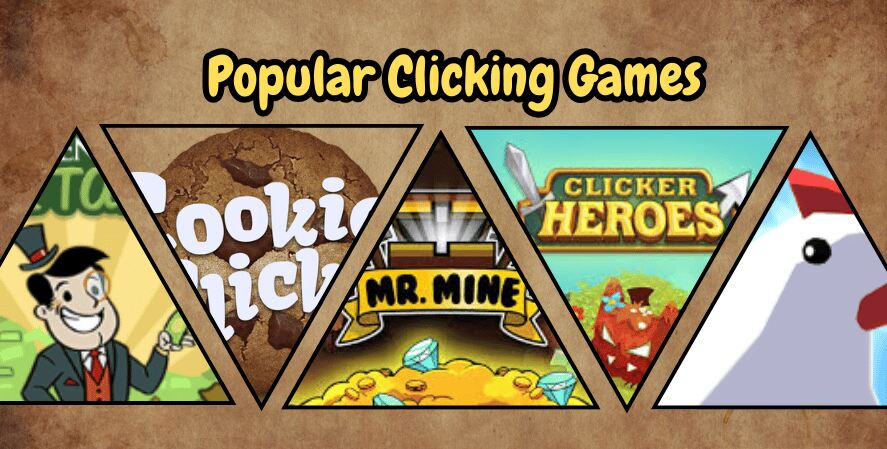
Mr. Mine
- What Makes It Stand Out: A mining-themed clicking game with deep progression and unique mechanics.
- Strengths: Combines idle gameplay with resource management and a sense of exploration.
Cookie Clicker
- What Makes It Stand Out: The classic clicking game that started the craze, full of humor and quirky upgrades.
- Strengths: Simple mechanics paired with endless replayability and automation features.
Clicker Heroes
- What Makes It Stand Out: A creative blend of clicking and RPG-style battles with character upgrades.
- Strengths: Offers strategic gameplay and long-term progression.
Egg, Inc.
- What Makes It Stand Out: A charming and visually engaging game focused on building a futuristic egg empire.
- Strengths: Combines idle mechanics with resource optimization and delightful graphics.
Adventure Capitalist
- What Makes It Stand Out: A hilarious take on building a business empire with minimal effort.
- Strengths: Intuitive gameplay and addictive upgrades make it a favorite among casual players.
Player Insights and Experiences
What Players Say About Clicking Games
- Anna, 25: “I love how simple idle clicker games are. They’re perfect when I want to relax and unwind.”
- Jake, 30: “Watching my progress grow in Cookie Clicker never gets old. It’s oddly satisfying!”
Why Players Keep Coming Back
- Stress-Free Gaming: Idle clicker games don’t require heavy thinking or commitment.
- Progress Feels Rewarding: Small steps lead to big achievements.
- Sense of Community: Leaderboards and events add a fun social element.
Conclusion
Clicking games have mastered the art of fun and simplicity. Their easy-to-learn mechanics, rewarding gameplay, and constant updates make them a hit with casual players worldwide. Whether you’re building a cookie empire or managing a chicken farm, these games prove that sometimes, the simplest ideas are the most captivating.


